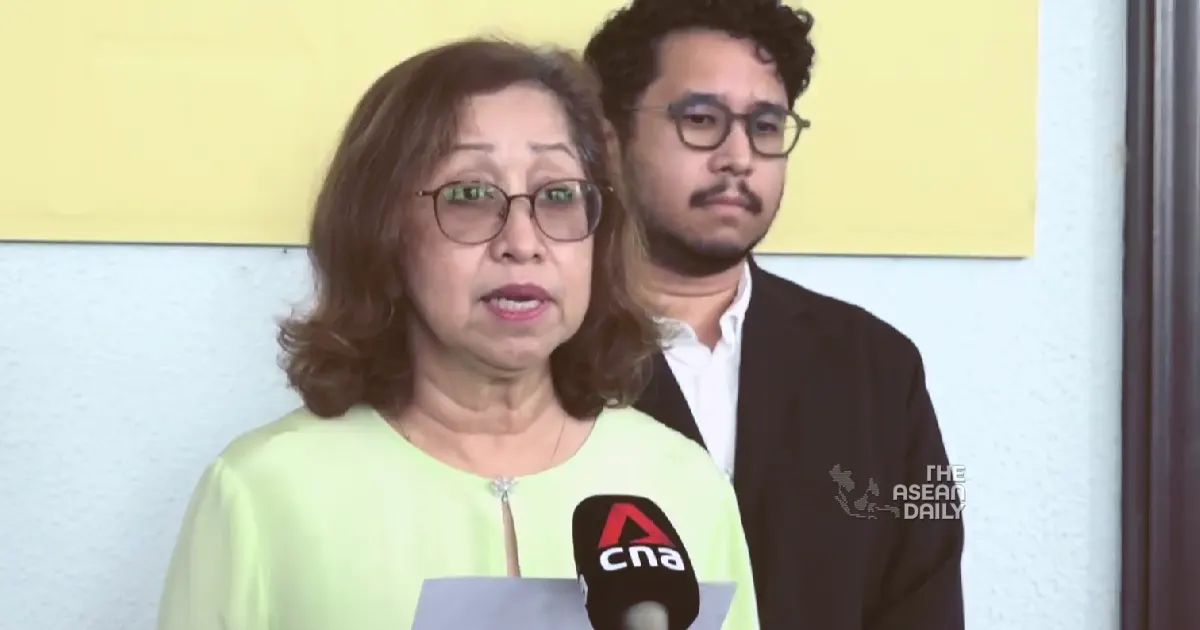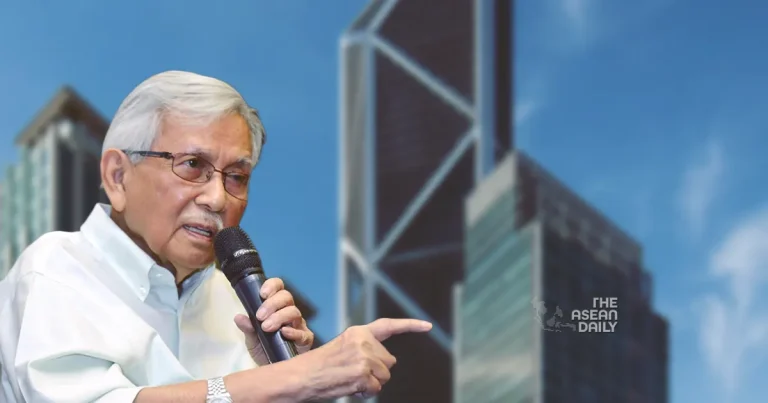24-1-2024 (KUALA LUMPUR) The jailing of Rosmah Mansor, wife of former Malaysian Prime Minister Najib Razak on charges of graft, was hailed as a triumph against high-level corruption. However, the ongoing investigations by the Malaysian Anti-Corruption Commission (MACC) into other prominent political figures are raising uncomfortable questions on the motives and fairness of the probes.
The current investigations into the family members of former finance minister Daim Zainuddin and ex-premier Mahathir Mohamad have triggered allegations of selective prosecution and political vengeance. While the MACC has justified its actions as part of wider probes into individuals named in the Pandora Papers and Panama Papers, critics argue the timing and targets seem strategically aligned against the opposition.
This perceived bias threatens to undermine the credibility of the anti-corruption drive. For Prime Minister Anwar Ibrahim, balancing political imperatives with principles of good governance will define his leadership. Navigating the corruption chronology will require impartiality and transparency.
The Curious Timing
When Daim’s wife was charged with failing to declare assets last week, it represented an escalation of the MACC investigation into the family’s finances. However, critics questioned why probes into Daim and Mahathir were only initiated recently when the Pandora and Panama Papers were leaked years earlier.

The late prosecution has fueled accusations of selective targeting, with claims the MACC is deliberately pursuing Anwar’s political nemeses. If anti-corruption efforts appear partisan, public trust will rapidly erode. While the revelations in the papers provided legal justification, the conspicuous delay in acting raises doubts over motives.
For the MACC to maintain legitimacy, the corruption chronology must demonstrate consistent principles rather than selective opportunism. If Anwar desires an unsullied anti-graft legacy, transparency and equitability are paramount.
The Imbalance of Focus
Observers have also pointed out the imbalance that the MACC has focused narrowly on Daim and Mahathir’s associates while ignoring others named in the papers from across Malaysia’s political spectrum.
The revelation that current ministers and deputy prime minister Zahid Hamidi were also implicated makes the intense scrutiny on the opposition seem disproportionate by comparison. This unequal application risks portraying the anti-corruption drive as politically-aligned rather than neutral.
To underscore its impartiality, the MACC should expand investigations to encompass government figures as well as opposition. The corruption chronology must highlight systemic abuses of power rather than individual vendettas. Politicised prosecution will only breed public cynicism.
For Anwar, presenting anti-corruption efforts as partisan score-settling will undermine his reformist image. To build faith, he must ensure MACC probes encompass all suspects regardless of alignment.
The Rule of Law, Not Politics
While Daim and Mahathir’s wives were charged on technical disclosure issues, the MACC lacks authority to decide verdicts or sentences. Its role is solely to investigate and make recommendations to the Attorney General’s Chambers.
Yet Mahathir protested his son was subject to coercive five-year jail threats during questioning. If true, such actions blatantly overstep investigative parameters, portraying a vindictive crusade rather than lawful inquiry.
The corruption chronology must reinforce the impartiality of Malaysian law rather than bend to political vendettas. Anwar himself suffered under trumped-up charges; he should be vigilant against repeating past injustices, albeit in the guise of anti-corruption. Due process and rights of the accused should be sacrosanct.
Probing the Powerful
Anwar argues that investigating prominent politicians is inherently challenging, given their resources and connections. The public may see takedowns of elite figures as political retribution.
However, Malaysians largely support wider probes of past abuses by officials holding “unexplained wealth.” The public perceives glaring double standards that let the powerful evade consequences for graft. They yearn for accountability.
With astute management of optics and ethics, Anwar can harness this sentiment to build support for anti-corruption reforms. While probes of VIPs cause tensions, most Malaysians want appropriate sanctions against crooked leaders on all sides. The corruption chronology must reflect this egalitarian spirit.
Politics or Principle?
The MACC probes have provoked criticisms of bias, but also hopes of impartial justice. If conducted fairly, high-profile investigations can demonstrate Anwar’s commitment to reforms is greater than political vendettas.
But perceptions of partisan targeting will shatter public trust. The P.M. must ensure transparency, equitability and adherence to rule of law shape the corruption chronology. Prosecutions should reflect ethics, not expediency.
Anwar’s own reputation suffered under specious charges before. He must guarantee the rights of suspects and let the law, not politics, run its course. With wisdom and integrity, Anwar can chart a corruption chronology that embodies justice beyond partisanship. This will define his leadership legacy.




